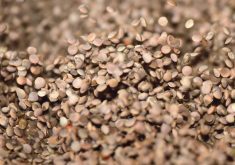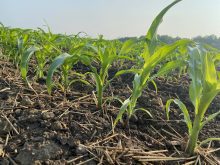This fall’s sugar harvest was a battle between Mother Nature and southern Alberta farmers. Mother Nature won.
Andrew Llewelyn-Jones of Taber, agricultural superintendent at the Lantic Sugar plant in Taber, said the latest blast of winter forced the company and officials of Alberta Sugar Beet Growers Marketing Board to call a halt to field operations. “We only have a few odds and ends to clean up. It’s the worst harvest campaign on my watch,” said Llewelyn-Jones, who started with the company in 1986.
Read Also

‘Millions will die’: Foodgrains Bank faces $2.7B federal funding threat
Foodgrains Bank warns $2.7B aid cut triggers a humanitarian crisis, risking global hunger relief and 40 per cent of its funding.
About 6,500 acres of beets were left in the field, allowing Lantic to process about 78 per cent of the 2009 crop planted on about 29,600 acres. Lantic is working to finish processing the last of the frozen sugar beets and then will turn its attention to the sugar beets piled prior to the adverse weather which hit October 4. Those beets, about 35 per cent of the expected crop, where stored in good condition.
Doug Dueck of Lethbridge, regional crop insurance manager for Alberta Farm Services Corporation, said adjusters are working directly with insured sugar beet growers. Sugar beets are the only crop producers can insure for 90 per cent of their individual 15-year yield average. Insurance payments will be made once producers have produced their harvested production report. Insurance is paid on the difference between the tonnage harvested and the coverage level on a farm basis. If a producer harvested more tonnes than insurance covered, there is no payment.
While insurance will provide compensation for producers who qualify, the loss without insurance on the 150,000 tonnes lost to weather would hit $6.75 million if the beets are worth $45 a tonne. Harvest costs would not be incurred, but extra costs will be faced in dealing with the frozen crop. This year, farmers were expecting a premium price because the world sugar price is the highest in the past 20 years.
Producers will also see reduced incomes from the frozen beets that were processed because payment is based on sugar content of the beets. “Overall losses to growers could be $6 million to $7 million,” said Llewelyn-Jones. He said planning will begin soon with the marketing board for next year’s production.














